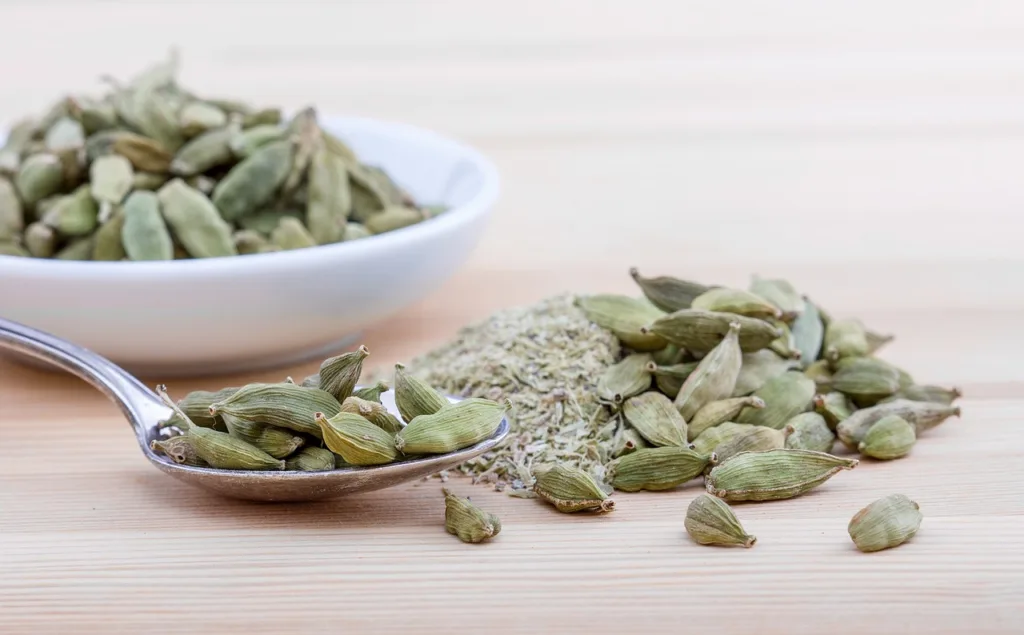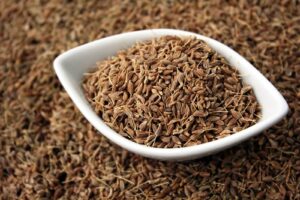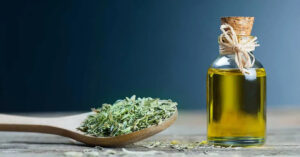Origin and History
Cardamom, scientifically known as Elettaria cardamomum, is a spice native to the evergreen rainforests of southern India. It has been used for centuries in Ayurvedic medicine and traditional cooking.

By the 3rd century BC, cardamom embarked on a global voyage, gracing the tables of Roman emperors. The ancient Egyptians, Greeks, and Romans valued cardamom for its medicinal properties and as a flavor enhancer in various dishes. The spice gained popularity along the ancient trade routes especially the silk route. Today, cardamom is cultivated in several countries, including India, Guatemala, Sri Lanka, and Tanzania with India and Guatemala being the leading producers.

For centuries, its captivating aroma and taste wove a fragrant tapestry across continents, fueling a vibrant trade route known as the “Spice Trail.” From its verdant Indian birthplace, caravans laden with precious green pods embarked on perilous journeys, traversing scorching deserts and perilous seas.Arab merchants acted as middlemen, their ships exchanging cardamom for gold, ivory, and other treasures. This fragrant cargo reached Roman emperors, gracing their feasts with exotic intrigue.
Even Vikings, lured by the spice’s allure, ventured east, seeking its warmth to enliven their stews and mead. This intricate dance of commerce not only enriched palates but also fostered cultural exchange, leaving an indelible mark on the historical landscape, forever intertwining cardamom’s fate with the ebb and flow of global trade
Types of Cardamom
There are three main types of cardamom: green cardamom and black cardamom
• Green Cardamom (Elettaria cardamomum): The “true” cardamom, known for its vibrant green pods, intense aroma, and slightly sweet, citrusy flavor. It features prominently in Indian and Middle Eastern cuisine.
• Black Cardamom (Amomum subulatum): Larger and darker than its green counterpart, black cardamom possesses a smoky, eucalyptus-like aroma and a bolder, peppery taste. It excels in savory dishes and garam masala blends.
• White Cardamom (Amomum elettarium): This rare variety, originating from Sri Lanka, offers a milder, floral aroma and a delicate sweetness. It’s primarily used in Scandinavian baking and Nordic aquavit.
Composition
Cardamom’s captivating aroma and taste stem from a symphony of volatile compounds within its essential oil. This complex blend features α-terpinyl acetate (30-60%), the star player responsible for the floral sweetness, supported by 1,8-cineole (20-50%), offering a refreshing eucalyptus-like hint. Limonene (2-14%) contributes a zesty citrus note, while myrcene (5-10%) adds a touch of earthy warmth.
The spicy undertone comes from β-caryophyllene (5-10%), while oxygenated sesquiterpenes like linalool acetate (1-3%) and α-terpineol (2-5%) complete the pleasant aromatic experience. This unique chemical dance defines cardamom’s character, making it a versatile ingredient appreciated for both its culinary magic and its potential therapeutic benefits.
Health Benefits
Cardamom is not only a versatile spice but also boasts numerous health benefits. Let’s explore some of its key medicinal properties:
1. Digestive Aid
It is known to improve digestion and relieve digestive discomfort such as bloating, gas, and indigestion. It stimulates the secretion of digestive enzymes, which helps break down food more efficiently.
2. Anti-inflammatory Properties
The active compounds found in it possess anti-inflammatory properties that can help reduce inflammation in the body. This makes it beneficial for individuals with conditions such as arthritis and inflammatory bowel disease.
3. Oral Health
It contains natural compounds that have antimicrobial properties. Chewing on cardamom pods or using cardamom-infused mouthwash can help combat bad breath and prevent oral infections.
4. Heart Health
Research suggests that consumption of this aromatic spice may have a positive impact on heart health by lowering blood pressure and reducing cholesterol levels. This can make the cardiovascular system stronger an reduce the risk of heart attack
5. Antioxidant Properties
It is rich in antioxidants that help protect the body against oxidative stress caused by free radicals. These antioxidants may also have anti-cancer properties and support overall immune system function.
Appropriate Dosage of Cardamom
When it comes to consuming cardamom for its health benefits, it is essential to know the appropriate dosage. While there are no strict guidelines, here are some general recommendations:
• Ground Form: Start with 1/4 to 1/2 teaspoon per day.
• Pods: Use 2-3 pods per day by crushing them before use.
• Tea: Steep 1-2 crushed cardamom pods in hot water for 5-10 minutes.
It’s important to note that individual tolerance and desired effects may vary. It is always best to consult with a healthcare professional or an Ayurvedic practitioner for personalized advice.
Different Ways to Consume Cardamom
Cardamom can be incorporated into your daily routine in various ways. you can use cardamom in the following ways :
1. Culinary Uses
Cardamom adds a delightful flavor to both sweet and savory dishes. It can be used in baked goods such as cakes, cookies, and bread, as well as in curries, stews, and rice dishes. Ground or crushed cardamom pods can be sprinkled over desserts or added to hot beverages like coffee or chai tea.
2. Cardamom Infused Water
You can infuse water with the essence of cardamom by adding a few crushed pods to a jug of water and letting it sit overnight. This infused water can be consumed throughout the day to enjoy the subtle flavors and potential health benefits of cardamom.
3. Cardamom Tea
Cardamom tea is a popular beverage in many cultures. To make cardamom tea, crush a few pods and steep them in hot water for 5-10 minutes. you can add honey or lemon for a change in taste.
4. Supplements
For individuals who prefer a more concentrated form of cardamom, there are cardamom supplements available in capsule or powder form. These supplements ensure standardized doses and can be easily incorporated into your daily routine.
Obtaining Cardamom
Cardamom can be obtained from various sources depending on your preference:
1. Local Grocery Stores
Most well-stocked grocery stores carry both whole cardamom pods and ground cardamom powder in their spice section. Look for high-quality brands that source their spices from reputable suppliers.
2. Specialty Spice Shops
Specialty spice shops often offer a wider variety of cardamom options, including different grades and origins. These shops may also provide guidance on selecting the best type of cardamom for your specific needs.
3. Online Retailers
Online retailers provide a convenient way to purchase cardamom from the comfort of your home. Ensure that you choose a reputable seller with positive customer reviews to ensure the quality of the product.
Possible Side Effects of Cardamom
While cardamom is generally safe for consumption, some individuals may experience allergic reactions or mild digestive issues due to its potent nature. It is recommended to start with small amounts and monitor your body’s response when incorporating cardamom into your diet. Stop using it incase of an adverse reaction and consult a medical practitioner.
Precautions When Using Cardamom
Although cardamom is considered safe for most people, certain individuals should exercise caution:
1. Pregnancy and Breastfeeding
While there is limited research on the effects of cardamom during pregnancy or breastfeeding, it is advisable to consult with a healthcare professional before consuming it in larger amounts than typically used in cooking.
2. Gallstone Issues
Cardamom may stimulate gallbladder contractions, which could be problematic for individuals with gallstones or gallbladder disease. It is best to consult with a healthcare professional before consuming larger amounts of cardamom.
3. Drug Interactions
Cardamom may interact with certain medications or herbal supplements. If you are taking any prescription medications or have underlying health conditions, it is recommended to consult with a healthcare professional before incorporating cardamom into your routine.
In conclusion, cardamom is an aromatic spice that not only enhances the flavors of various dishes but also offers numerous health benefits. From its ancient origins to its modern usage, this versatile spice continues to captivate culinary enthusiasts and health-conscious individuals alike. Whether you choose to use it in cooking or incorporate it into your daily routine through infused water or tea, cardamom is truly a spice worth savoring.
Remember to consult with healthcare professionals before making any significant changes to your diet or lifestyle, especially if you have underlying health conditions or are taking medications. Enjoy exploring the world of cardamom and discovering all the ways it can enhance your culinary creations and support your well-being!
Frequently Asked Questions (FAQs)
Q1: Can I use ground cardamom instead of whole pods in recipes?
A1: Yes, ground cardamom can be used as a substitute for whole pods in recipes. Use approximately 1/2 teaspoon of ground cardamom per three pods called for in the recipe.
Q2: Is cardamom safe for children?
A2: Cardamom is generally considered safe for children when used in moderate amounts in cooking or infused water. However, it is advisable to consult with a pediatrician before using higher concentrations or supplements.
Q3: Can I use expired cardamom?
A3: While using expired cardamom may not pose any immediate health risks, it may have lost some of its flavor potency over time. For optimal taste and aroma, it is recommended to use fresh cardamom whenever possible.
Q4: Can I consume too much cardamom?
A4: Consuming excessive amounts of cardamom may cause digestive discomfort such as heartburn or diarrhea in some individuals. Stick to moderate doses and monitor your body’s response.
Q5: Is there any scientific evidence supporting the health benefits of cardamom?
A5: Yes, several scientific studies have investigated the potential health benefits of cardamom, including its antioxidant properties, digestive benefits, and positive effects on heart health. Though more research is required before anything can be reaffirmed in this regard.
Reference : http://www.britannica.com







